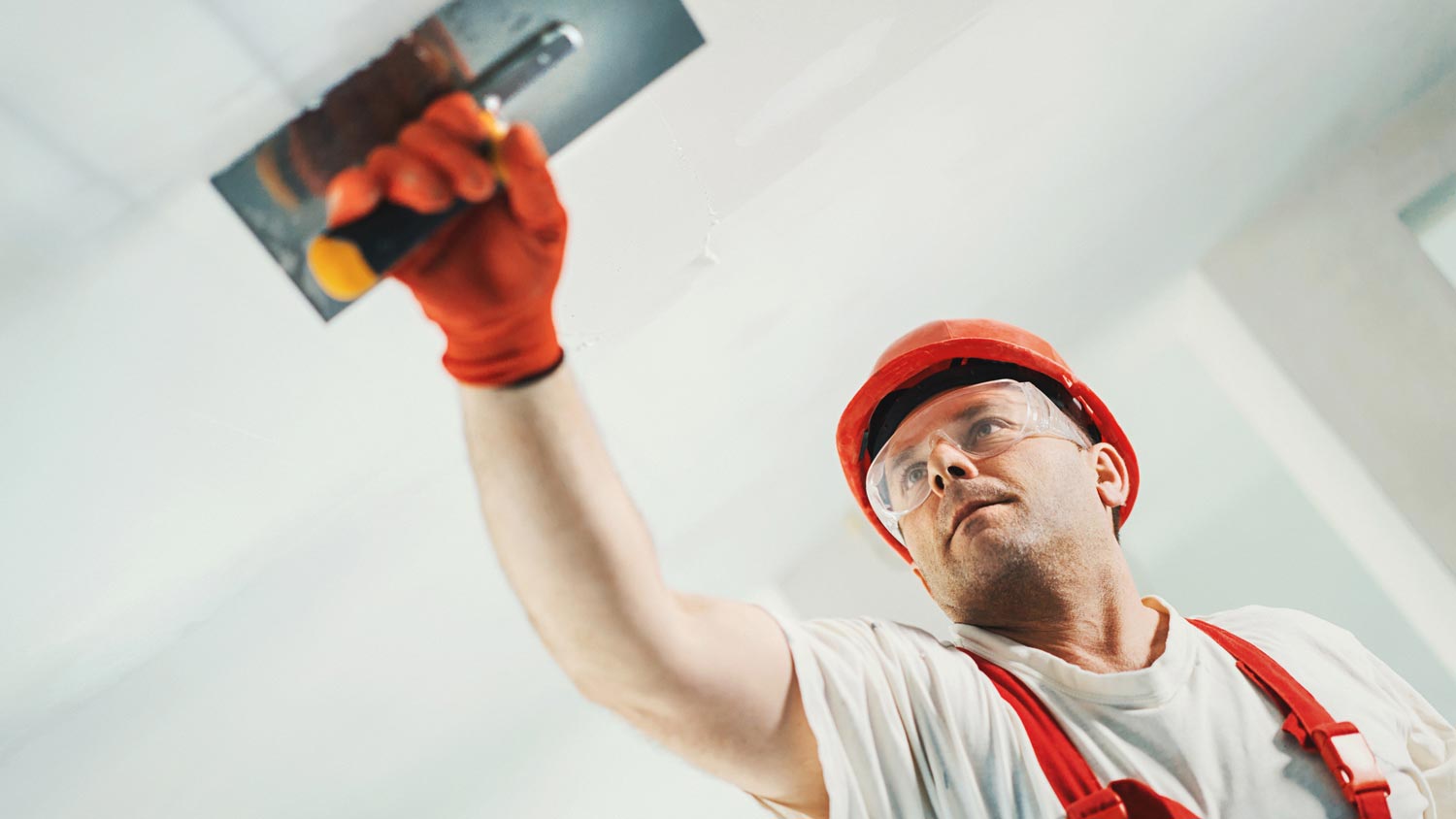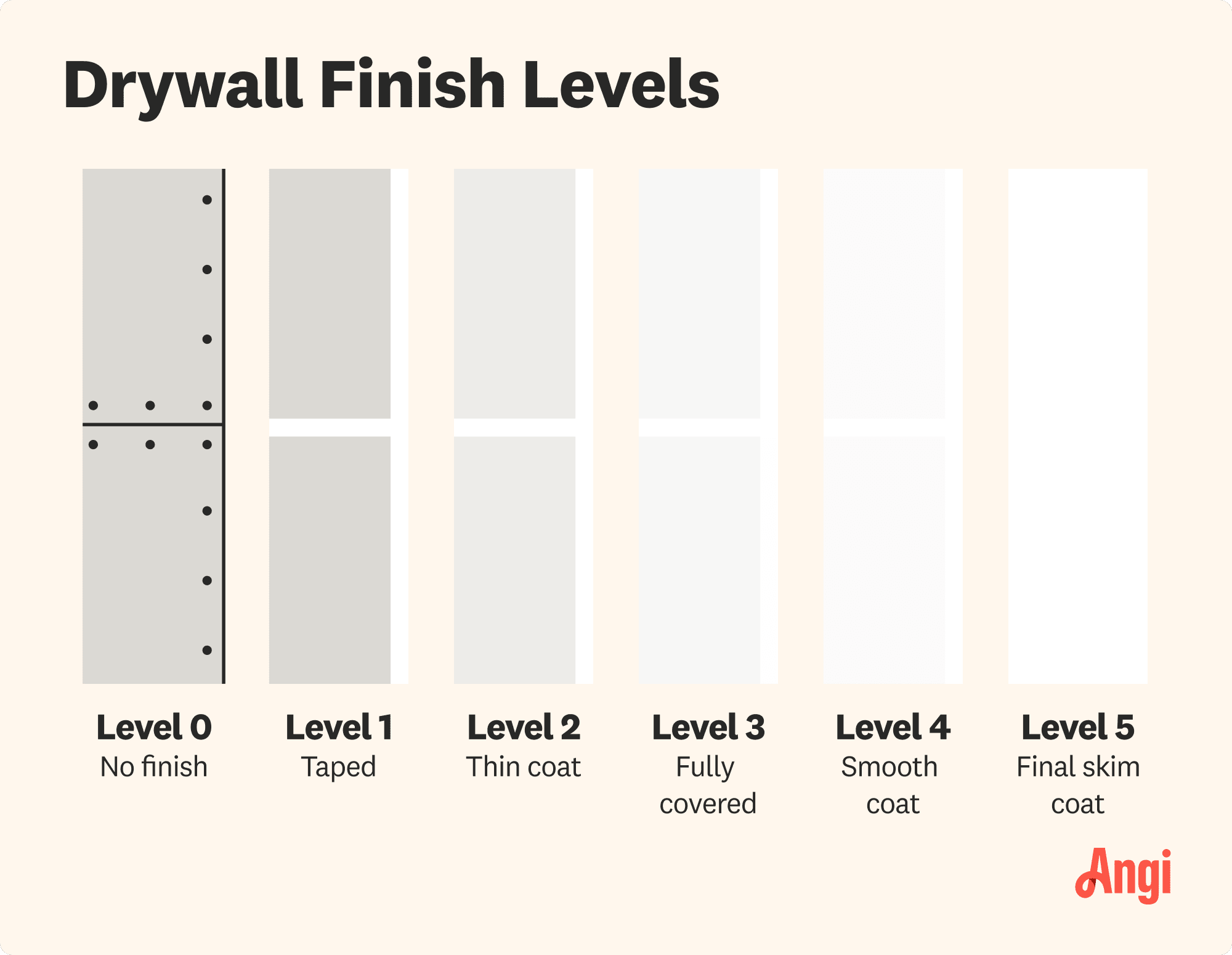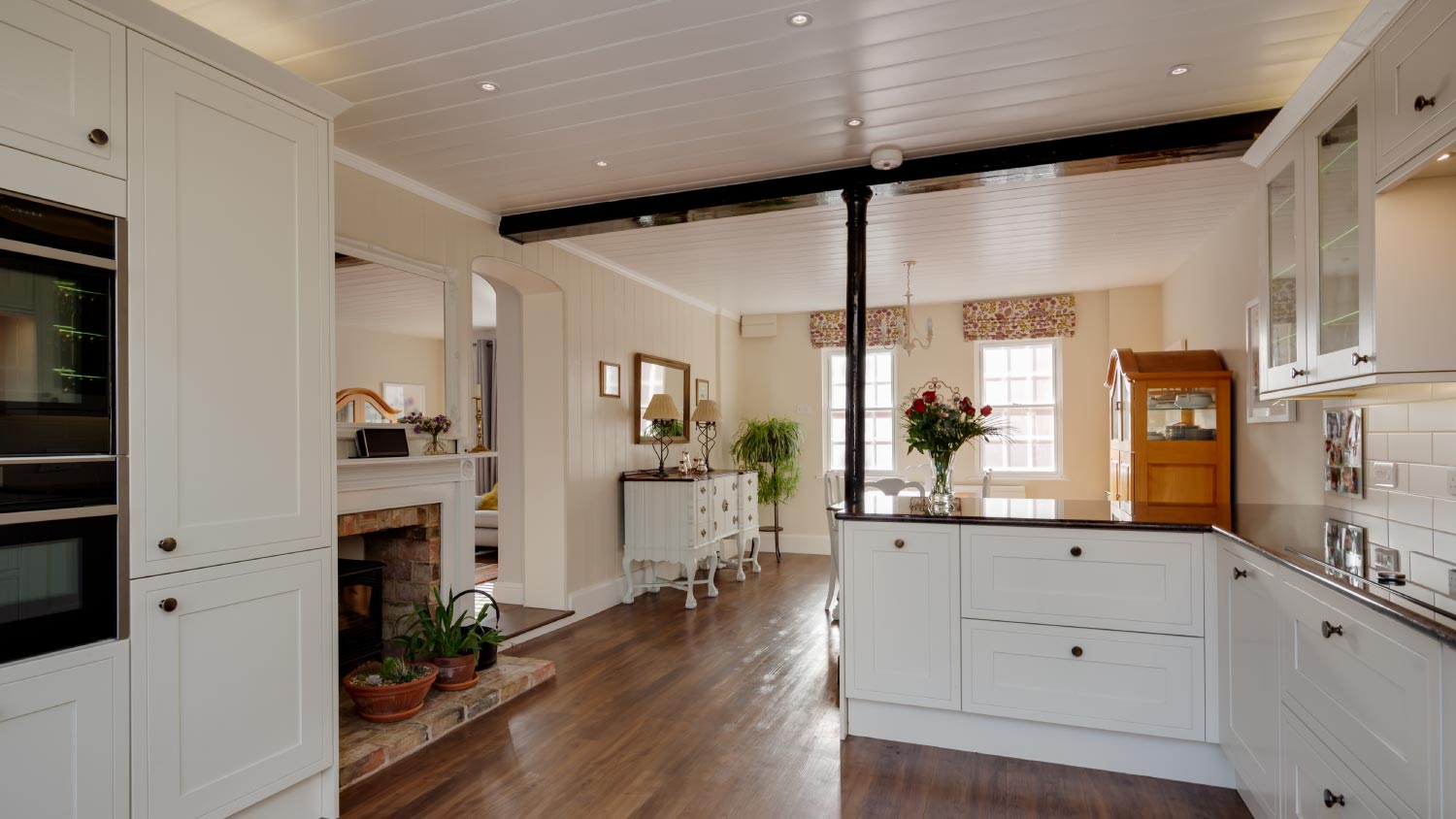
Skim coating drywall is a great alternative to replacement, and is often more affordable. Use this guide to estimate the cost to skim coat walls in your home.
The average drywall installation cost in Indianapolis is $1,777, with a typical range of $831 to $2,791. A pro will consider factors like drywall type, thickness, and finish for your final price.


Drywall installation pros in Indianapolis charge between $0.65 and $1.90 per square foot of drywall installed.
Snowfall totals reaching 25 inches per year and a brutal freeze-thaw cycle make springing for moisture-resistant drywall a sound choice for Indianapolis homeowners.
Unlike most major Midwestern cities, Indianapolis does not apply a city sales tax on top of the 7% state sales tax rate—reducing the cost of drywall materials slightly.
The average drywall installation cost in Indianapolis, Indiana is $1,777, with homeowners paying anywhere from $831 to $2,791. With materials accounting for a large portion of this project's cost, the biggest cost factor is the size of the project.
In addition, investing in higher-cost specialty drywalls that protect against moisture and mold can also be critical in Indiana's extreme freeze-thaw cycle. Let’s review how Indianapolis homeowners should budget for this project.
As you budget for adding new drywall in Indianapolis, Indiana, the square footage will determine the amount of drywall materials and labor time needed—directly impacting your overall project cost.
Whether you’re working on a small bathroom or a spacious living room, having an estimate of costs based on room size can help you plan your budget more effectively. Installing drywall in a small bathroom of around 100 square feet will cost $400 to $650, while for a large living room, it can range from $1,500 to $3,000.
Here’s a chart that gives the average costs for installing drywall—including materials and labor—in different common room sizes:
| Room Size in Square Feet | Average Cost |
|---|---|
| 100 | $300–$500 |
| 200 | $600–$1,000 |
| 300 | $900–$1,500 |
| 400 | $1,200–$2,000 |
| 500 | $1,500–$2,500 |
Standard drywall is the most affordable option, but more expensive types may be worth the additional investment in some scenarios.
| Drywall Type | Best Use | Average Cost of Materials per Square Foot |
|---|---|---|
| Moisture-resistant | Bathrooms, kitchens | $0.35–$0.60 |
| Mold-resistant | Extra-moist areas | $0.55–$0.60 |
| Fire-resistant | Garages, boiler rooms, commercial buildings | $0.65–$0.80 |
| Soundproof | Music rooms, kids’ rooms, primary bedrooms | $1.35–$2.25 |
| Eco-friendly | All rooms | $0.45–$0.70 |
Drywall thickness can sway your total price. If you’re on a minimal budget, you might want to opt for the thinnest quarter-inch panels. Three-eighths-inch and half-inch are the most common varieties. Soundproof and fire-resistant panels are usually five-eighths-inch thick. Drywall is sometimes available in ¾-inch thicknesses for added soundproofing.
| Drywall Thickness (Inches) | Ideal Use Case | Average Cost per Panel |
|---|---|---|
| 1/4 | Curved areas or patches | $12 |
| 3/8 | Patches or repairs | $14 |
| 1/2 | Standard walls | $16.50 |
| 5/8 | Standard ceilings, fire-proofing | $17.50 |
| 3/4 | Sound-proofing, fire-proofing | $20 |

Your drywall installation costs will vary depending on what level of drywall finish you agree upon with your contractor.
| Level | Description | Average Cost per Square Foot |
|---|---|---|
| 0 | Contractor hangs the drywall and no more | $0.65–$0.95 |
| 1 | Drywall has the seams sealed with tape and then covered with mud | $1–$1.50 |
| 2 | Has one coat of joint compound, typically to allow tiling on top | $1–$2 |
| 3 | Has two coats of joint compound for a smoother finish | $1.25–$2.50 |
| 4 | If you plan to use matte paint, pros recommend the application of three coats of joint compound | $1.35–$2.25 |
| 5 | A very high-quality finish which is the best option for enamel and gloss paint application. This includes three coats of joint compound and a full skim coat for a super-smooth appearance | $1.50–$2.75 |
When it comes to installing drywall, it’s best to hire a drywall installation pro in Indianapolis to ensure the job is done efficiently and effectively. Local drywall pros charge between $0.65 and $1.90 per square foot of drywall installed. If your home has complex architecture that includes things like high ceilings or arches, expect to pay above average for labor to account for the extra time.
Permitting is one of the first drywall questions to ask your contractor. You're not likely to need a permit to add new drywall to your home in Indianapolis if you're patching existing drywall or replacing a small section of drywall that's not structural or load-bearing. However, permits are needed for new drywall that's part of a larger structural modification. This can include projects like adding a dividing wall to create a new room or finishing a basement.
Work on drywall sections that contain electrical wiring, plumbing pipes, or HVAC piping may require separate permits for related work that can cost between $150 and $225 for the first 1,000 square feet of work. The cost for a drywall permit in Indianapolis may fall under the Residential Structure Repair, Alteration, and Remodel category of $153 for $1,000 square feet and under with an additional $23 per every 500 square feet over 1,000.
While no local sales taxes apply in Indianapolis or Marion County, all of the materials purchased by a contractor for drywall installation are subject to Indiana's 7% state sales tax.
New drywall has a strong return on investment (ROI) in Indianapolis if it's part of a major improvement like a kitchen or bathroom renovation. However, the type of drywall selected influences the perceived value. For example, paying $1.35 to $2.25 per square foot to upgrade to soundproof drywall can help to reduce echoes and sound travel, making it a selling point.
With Indiana receiving up to 25 inches of snow per year and undergoing an intense freeze-thaw cycle, moisture-resistant drywall costing $0.35 to $0.60 per square foot can also be a sound investment for local homeowners looking to avoid mold issues.
Home is the most important place on earth, which is why Angi has helped more than 150 million homeowners transform their houses into homes they adore. To help homeowners with their next project, Angi provides readers with the most accurate cost data and upholds strict editorial standards. We survey real Angi customers about their project costs to develop the pricing data you see, so you can make the best decisions for you and your home. We pair this data with research from reputable sources, including the U.S. Bureau of Labor Statistics, academic journals, market studies, and interviews with industry experts—all to ensure our prices reflect real-world projects.
Want to help us improve our cost data? Send us a recent project quote to [email protected]. Quotes and personal information will not be shared publicly.
From average costs to expert advice, get all the answers you need to get your job done.

Skim coating drywall is a great alternative to replacement, and is often more affordable. Use this guide to estimate the cost to skim coat walls in your home.

Installing beadboard ceilings is a great DIY project. Learn what to expect cost-wise from this project, whether removing or covering a popcorn ceiling.

Whether you’re trying to keep noise in or out, soundproofing materials are the way to go. Use this guide to see how much it costs to soundproof a room.

If you’re wondering, “How much drywall do I need?” this guide will help you estimate how many drywall sheets and related materials are required.

Ceiling cracks along drywall seams come from improper installation, leaks, settling, and foundation issues. Read this to learn why you have ceiling cracks.

Do you want to know whether your walls are drywall or plaster? Here are eight easy ways to tell the difference, including the age of the home and wall shapes.